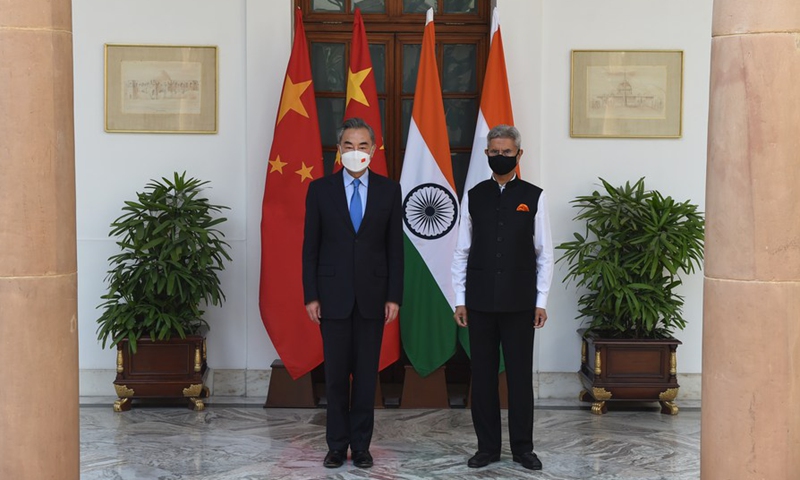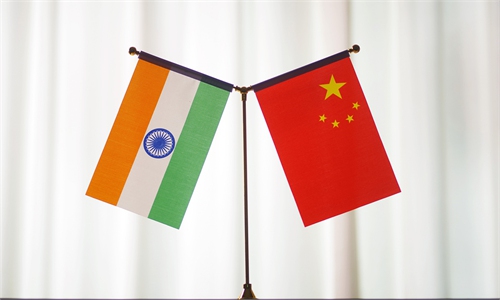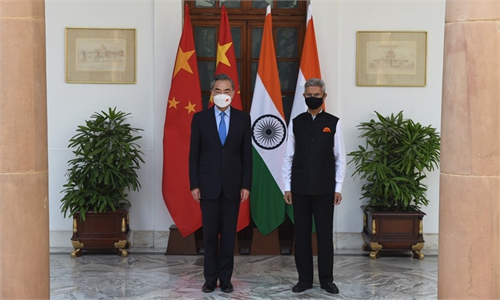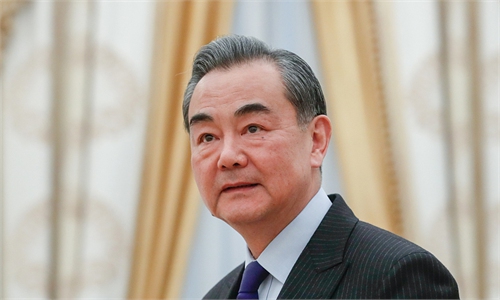
Visiting Chinese State Councilor and Foreign Minister Wang Yi (L) talks with Indian External Affairs Minister Subrahmanyam Jaishankar in New Delhi, India, March 25, 2022.Photo:Xinhua
Chinese businesses remain cautious about India after the ice-breaking visit by Chinese State Counselor and Foreign Minister Wang Yi to the country days ago, while holding expectations that the situation for Chinese companies will be improved as the two sides pursue more complementarities than differences in settling disputes.
While China-Indian relations are expected to improve, Wang's visit obviously sent a positive signal to ease the tensions between the two Asian countries, industry insiders said, though it will still take time before marked progress is made.
Harris Liu from the Chinese Chamber of Commerce in India told the Global Times on Tuesday that since the border clash, Chinese investors have encountered more issues in India, but Wang's visit will act as an important boost in helping improve the business climate there.
The management at the Aerotropolis Project at Durgapur Airport in West Bengal, a state in east India with a population of 90 million, expressed interest in attracting Chinese investment to develop the local airport-based economy, according to a press release on the website of the Chinese consulate general in Kolkata.
"Indian merchants in the industry are holding great expectations toward improving bilateral investment cooperation with China," Liu said, noting that India's largest business organization, the Federation of Indian Chambers of Commerce & Industry, recently took the initiative to contact the China Council for the Promotion of International Trade's representative office in India, hoping to organize and hold economic and trade cooperation activities between the two countries.
China and India share great potential for complementarities that benefit both sides in terms of trade and investment, but the potential has long been overlooked, experts said.
Chinese-funded mobile phone brand products account for more than 80 percent of India's smartphone market, making positive contributions to popularizing smartphone usage in India, industry data showed.
However, since November last year, the Indian tax agency has conducted surprise inspections of mobile phone companies such as Xiaomi and OPPO, followed by inspections targeting companies such as Huawei early this year, which dampened the enthusiasm of Chinese-funded companies to operate in India.
The situation is easing now. While the two sides maintain communication on border issues, India indicated in early January that it may reconsider investment from China.
On March 16, India officially approved 66 investments totaling $1.79 billion, mainly by Chinese companies.
Industry insiders in the photovoltaic (PV) business welcomed the positive change, though keeping watchful eyes on what will come next from New Delhi.
A market manager with a domestic PV company with plants in India told the Global Times on Tuesday on condition of anonymity that although there is no particular improvement in policy toward Chinese companies, he expects the thawing of relations will bring more positive changes.
The bilateral trade has been strong. In 2021, trade between China and India reached $125.6 billion, the first time that it exceeded the $100 billion mark, according to China's General Administration of Customs.
It is estimated that by 2035, bilateral trade will reach $500 billion, Liu said, "India's demand for Chinese goods is structural, and there is still room for a continued increase in exports to India."
In the coming months, relevant Indian authorities are expected to increase the investment applications from Chinese-funded companies, ease the visa application process for business personnel and improve the market environment for Chinese investors, Liu said.
However, the two countries need time to talk and resolve their structural differences, the insider noted.
"The risk of Chinese-funded enterprises operating in India is still high, which is the biggest challenge facing Chinese investment," Liu said.



